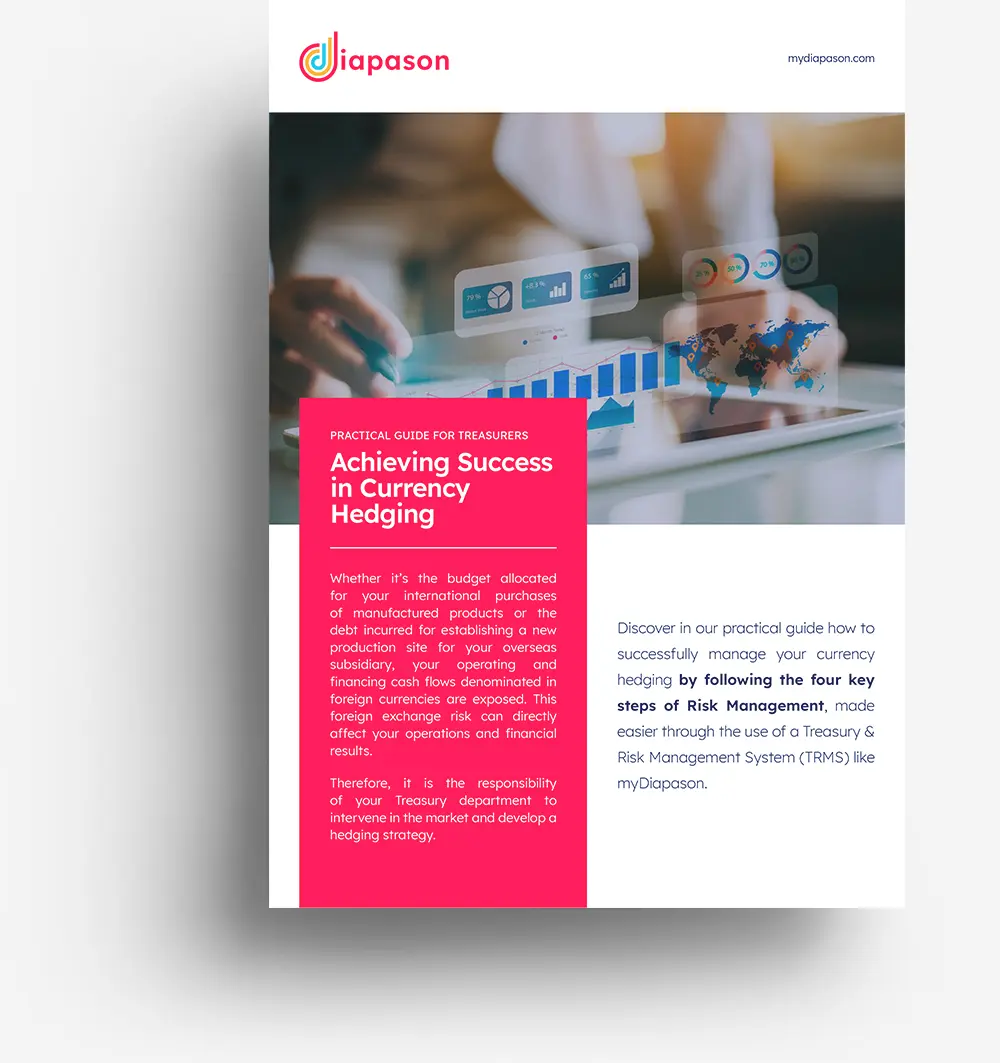
Cash Management: Definition and Principles
Cash management, also known as treasury management, is a strategic activity for businesses. Implementing the right processes and tools is crucial. Discover what cash management entails and the benefits of using a cash flow tracking software for better management.
Definition of Cash Management
Cash management, a term frequently used by treasurers, refers to the processes and tools used to manage and optimize a company’s financial flows, including disbursements, receipts, and investments.
Effective cash management ensures accurate monitoring and forecasting of a company’s funds, encompassing various data points such as:
- Account management
- Payment tracking
- Financial risk assessment
- Investment strategy development
- Inventory status
Given the breadth of activities involved, several individuals within a company participate in cash management. While the Finance and Treasury Director oversees cash management, the daily operations are handled by the cash manager in collaboration with the Finance and Treasury departments.
The Importance of Cash Management
Maintaining cash flow is directly linked to a company’s financial health. Effective cash management enables preventive or corrective actions to ensure sufficient liquidity and profitability.
Efficient cash management is crucial for any business with a large customer base, as it must operate on a much larger scale. Monitoring and tracking transactions at this level is significantly more complex. To ensure that money flows correctly in and out of the necessary accounts, businesses require immediate insight into their cash flow. This real-time visibility provides a snapshot of available liquidity at any time, facilitating decision-making and the development of financial and investment strategies.
Components of Cash Management Statement
Receivables Management
Receivables management involves tracking payments and includes Cash received from accounts receivable (AR), which is crucial for maintaining liquidity. Delayed payments can create cash flow problems, and without an effective collection process, a company may face issues such as:
- Difficulty in paying suppliers
- Delays in investments
- Emergency bank loans at high interest rates
Inventory Management
- Difficulty in paying suppliers
- Delays in investments
- Emergency bank loans at high interest rates
Cash Flow Forecasting
Accurate forecasts and comparisons between actual and projected data provide clear visibility into a company’s financial situation. Cash flow forecasts, aiming for medium- and long-term profitability, helps develop economic strategies. Good forecasting allows a company to anticipate cash flow gaps and address liquidity needs without jeopardizing financial stability.
Often overlooked, inventory represents a significant fixed cost for some companies. Daily inventory tracking is essential, as excessive inventory can strain cash flow. Proper inventory management also highlights trends and opportunities.
Investment Strategies
Investments are vital for a company’s growth and market share expansion. While investments contribute to profitability, they also impact resources and cash flow. Effective cash flow management considers future investments, ensuring sufficient liquidity and financial stability. In some cases, it can even enhance or create new investments by wisely utilizing identified cash surpluses.
The Role of the Cash Manager
The cash manager has a comprehensive view of a company’s financial flows, responsible for analyzing, optimizing, and securing cash flow. They also handle collections and seek new partnerships. The cash manager collaborates with:
- Finance department teams
- Treasury department teams
- Auditors
- Chief treasurer
- Treasury analyst
- Financial risk manager
- Bank relationship manager
- Treasury controller
- Financing specialist
- Finance and Treasury Director
To manage cash flow, the cash manager might use cash pooling, balancing liquidity among subsidiaries by centralizing at the parent company level. Legally, cash pooling is supported by Articles L 312-2 and L 511-7 of the Monetary and Financial Code.
Cash pooling is an effective technique but requires significant resources and good collaboration among subsidiaries. Each subsidiary reports its balance over time. In case of a cash deficit, the process is called “downstream” pooling, as the parent company sends funds to compensate. Conversely, if a subsidiary has excess cash, it’s called “upstream” pooling, where the surplus funds go to the parent company.
Cash pooling should be distinguished from netting. While both techniques leverage the pooling of subsidiaries, netting operates earlier in the process. It focuses on payment methods and reduces the number of transactions by consolidating some of them.
Advantages and Disadvantages of the MyDiapason Cash Management Solution
Effective cash management demands significant rigor and resources, prompting many companies to use software solutions. Choosing a treasury management software should be based on:
- Variety of features
- Strong compatibility with other IT systems and applications via API
- Customization options to meet specific needs
- User-friendly interface
- Responsive customer service
- Competitive pricing
Advantages and Disadvantages of Cash Management Software
Cash management software standardizes treasury management and automates numerous tasks, reducing costly human errors. MyDiapason, a SaaS cash management solution, simplifies data collection and analysis, ensuring reliable and secure processes.
Digitalize cash flow management provides treasurers more time to anticipate needs and add value. The three modules – Cash, Payment, and Risk – offer a comprehensive solution for effective cash management and a unique vision tailored to large groups and medium-sized enterprises (ETIs).
MyDiapason is suited for large groups and ETIs with dedicated treasury teams. Its adoption might not be appropriate for small businesses, but for ambitious, high-growth companies, it is a worthwhile investment.
Why Choose MyDiapason for Cash Management?
MyDiapason is a turnkey solution for comprehensive cash management. From financial flows management to risk management and investments, MyDiapason simplifies cash management and eliminates errors. It is an evolving solution tailored to large firms and and mid-cap companies, ensuring efficient and effective treasury management.
About the Author
Valérie Lafaury, Chief Marketing Officer
Valérie is the Chief Marketing Officer (CMO) of Diapason, the solution that streamlines corporate treasury management. She crafts press releases, in-depth articles, and timely pieces on topics related to the treasurer’s profession. Her goal is to provide treasurers with useful and practical information to optimize their treasury management.







